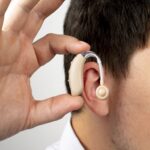With air pollution being a growing concern, many people are turning to air purifiers to improve the air quality in their homes and offices. However, with so many types of air purifiers available on the market, it can be challenging to choose the right one for one’s needs. In this article, we’ll explore several air purifier varieties, such as HEPA filters, activated carbon filters, UV germicidal lamps, and ionizers. Understanding the features and capabilities of each type can help individuals make informed decisions and select the air purifier that will best meet their needs for clean and fresh indoor air.
HEPA Filters
HEPA (High-Efficiency Particulate Air) filters represent the most widespread air purifier type. They excel at trapping particles like dust, pollen, pet dander, and mold spores. HEPA filters can eliminate as much as 99.97% of particles as small as 0.3 microns. They are a recommended choice for individuals dealing with allergies or asthma. However, recognize that while HEPA filters enhance indoor air quality by capturing particles, they are not as effective at eliminating odors, smoke, or chemicals.
Activated Carbon Filters
Activated carbon filters are capable of trapping and removing odors, smoke, and chemical pollutants from the air. They are highly effective in eliminating unpleasant odors from cooking, pets, and tobacco smoke. Activated carbon filters work by adsorbing the odor molecules onto the porous surface of the filter, effectively neutralizing the smell. While activated carbon filters are excellent for odor removal, they are not as effective in capturing fine particles like dust and pollen.
UV Germicidal Lamps
UV germicidal lamps utilize ultraviolet light to eliminate bacteria, viruses, and other microorganisms present in the air. These lamps emit short-wavelength UV-C light, which damages the DNA and reproductive system of microorganisms, preventing their growth and reproduction. UV germicidal lamps are often used in conjunction with other air purifier technologies, such as HEPA filters, to provide comprehensive air purification. Use UV germicidal lamps with caution, as prolonged exposure to UV-C light can be harmful to humans and pets.
Ionizers
Ionizers, often called electronic air purifiers, emit charged ions into the air to eliminate contaminants. These ions bond with airborne particles, causing them to cluster and become heavier, making them simpler to capture through filters or gravity. Despite their effectiveness in purifying the air, ionizers can generate ozone as a byproduct. Excessive ozone levels can be detrimental to human health, emphasizing the importance of selecting ionizers with low ozone emissions or those equipped with built-in ozone removal mechanisms.






